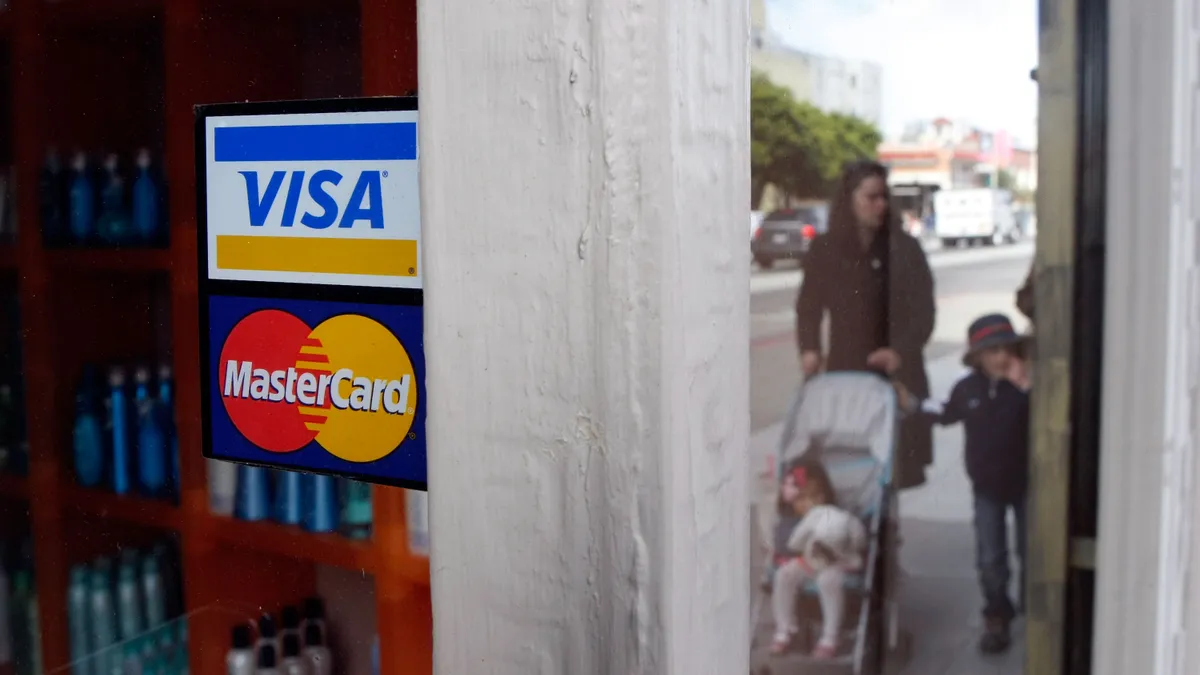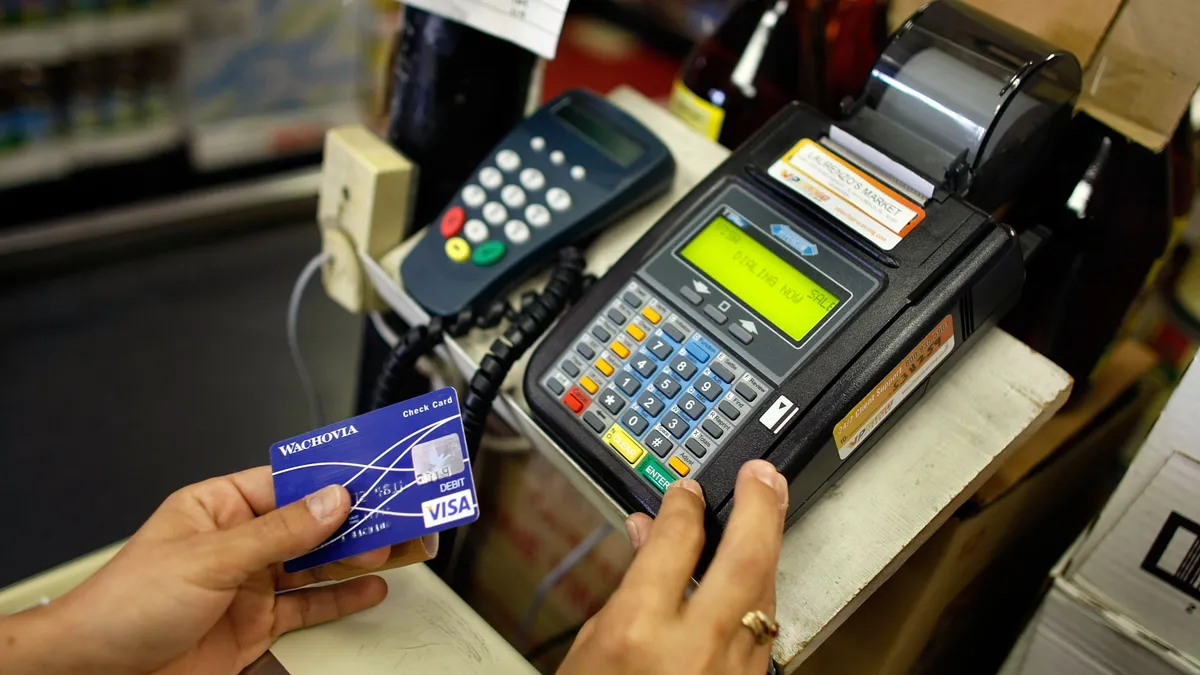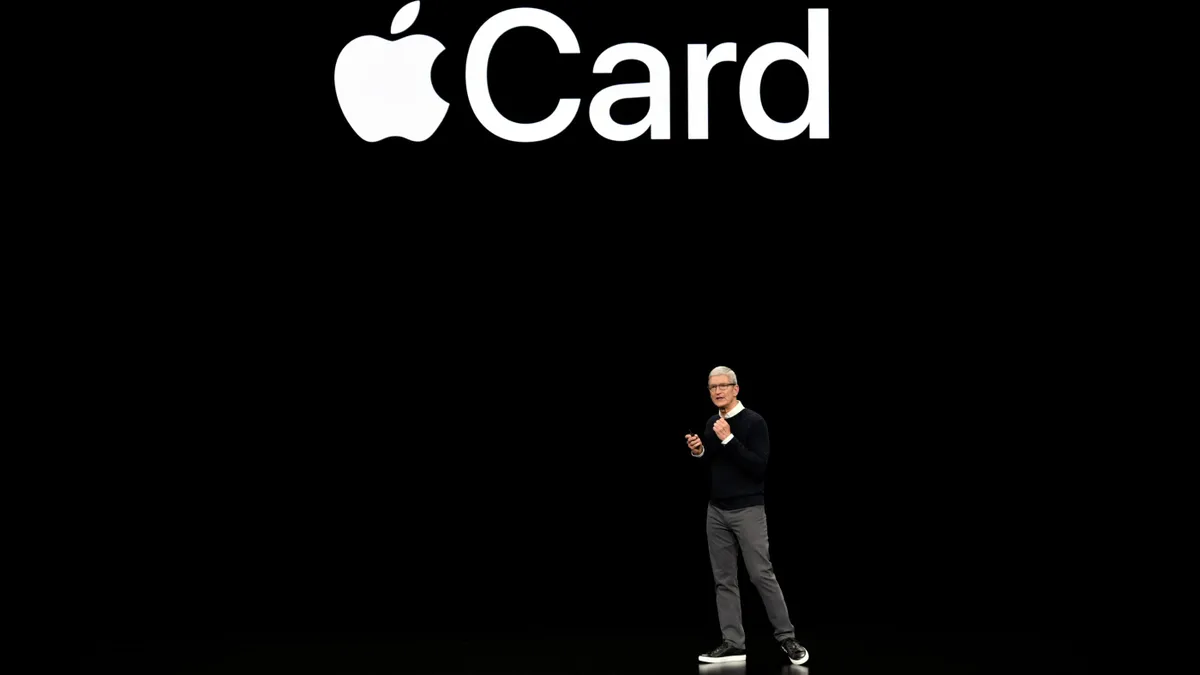What’s most striking about the increases in credit card "swipe" fee increases taking effect this month is the quietude with which they’re unfolding.
Contrast that with last year when the mere suggestion of the interchange fee increases for merchants unleashed a firestorm of protest. Retailer and merchant trade groups issued a wave of press releases filled with outrage that their members might be forced to absorb the hikes just as their businesses were recovering from the pandemic. Their political allies Sen. Dick Durbin (D-IL) and Rep. Peter Welch (D-VT) condemned the duopoly’s threatened increases and President Joe Biden’s new administration was suddenly probing Visa’s debit practices. The outcry led Visa and Mastercard to say they would hold off on any increases for a year, as they did in 2020.
The National Retail Federation and the Merchants Payments Coalition are still stamping their feet, as usual, about the increases going into effect this month, but there has been not a peep on the topic from Durbin or Welch and nothing much new from federal agencies either.
Consumer Financial Protection Bureau Director Rohit Chopra lashed out at the card companies over the fee increases last month but didn’t take any action. Neither has the Justice Department nor The Federal Trade Commission, which have been investigating the card companies’ practices on and off for years. Indeed, antitrust campaigns may be getting tougher to pursue as a swarm of new fintechs invent payment tools all over the market that seek to skirt card rails.
The merchants themselves have been largely silent, too. For instance, there was little, if any, reference to the increases on a panel of merchants hosted by Bank of America last month at its Payments, Processors and IT Services conference.
"On the regulatory front, credit interchange is not thought to be a high priority item for Congress any time soon," Bank of America analysts wrote almost as an afterthought in a March 23 note recapping the panel discussion.
Of course, Amazon made an aggressive attack on Visa’s fees last year, but that, too, has quieted down now, following a pact between the two companies that disclosed few details, though presumably provided the e-commerce juggernaut with concessions.
So, why is it that credit card fee increases this year are prompting so little discussion, aside from the usual drumbeat of protest from the National Retail Federation and the Merchants Payments Coalition?
One reason may be that the increases by Visa, which dominates the U.S. market, appear to be a fait accompli. Despite pledging early last year to hold off on hikes, Visa went ahead with fee boosts estimated at $697 million in 2021, according to CMSPI, a payments consulting firm that has worked for merchants. CMSPI estimates Visa will impose another $145 million in increases this year.
Meanwhile, Mastercard is moving ahead with the estimated $330 million in increases that it put off last year, according to CMSPI. All in all, these are the biggest interchange increases CMSPI has charted in at least a decade, said Josh Pynn, a consultant at the Atlanta-based firm.
But the CMSPI totals don't include the impact of a fee reduction Visa rolled out this year, giving small merchants, with $250,000 or less in payments volume, a 10% cut. That deft move by Visa of placing fee cuts alongside increases may be another reason for the lower-key reaction. With that stroke of generosity, the card giant robbed its foes of a bigger rallying cry they might have had against wholesale increases.
A spokesperson for Visa declined to comment and a spokesperson for Mastercard didn’t respond to a request for comment.
Analyzing the fees is no small task, with a slew of different changes for different categories of transactions. Still, there is some corroboration for CMSPI’s general premise that fees were on the rise last year. The card industry research firm The Nilson Report issued a report this month showing a sizable increase in credit card fees last year. "Merchants (in the U.S.) paid $105.23 billion in processing fees to accept credit cards last year, an increase of 25.1%," the report said.
The increase, plus the surge in e-commerce spurred by the pandemic, all showed up last year in signficant profits for the card companies and the banks issuing their cards.
With the lion’s share of increases already in place, maybe merchants have just been resigned to their pricey interchange cost of doing business at a time of widespread inflation.
"They set the rates and that’s basically what it is," said Tony Bolduc, president of Merchant Cost Consulting, a Boston firm that advises merchants on reducing fees. Visa is a large corporation that doesn’t listen to small merchants, Bolduc explained, even though he services merchants that have up to $300 million in annual revenue. "There's nothing we can do," he said.
Instead of waging a futile fight over 80% of the interchange fee that goes to the card networks and their bank issuers, Bolduc’s firm focuses on reducing the 20% that goes to big processors. Those fees may be a smaller portion, but they’re going up at a faster rate, he said.
Still, bending the processors won’t make much difference when the card companies are raking in the bulk of the interchange fees. Nonetheless, most merchants don’t have the wherewithal of Amazon to take on Visa with worldwide surcharges. And many are also too big to qualify for Visa’s new fee break.
So, what the reaction of merchants sounds like this year is a collective sigh — a resignation to absorbing whatever increases the card duopoly is able to get away with.
Maybe they’re hoping the gathering strength of fintech competitors, like Stripe, may one day undercut the card company heavyweights and accomplish the kind of revolution in fees that trade groups seem unable, and the federal government seems unwilling, to make happen.



















